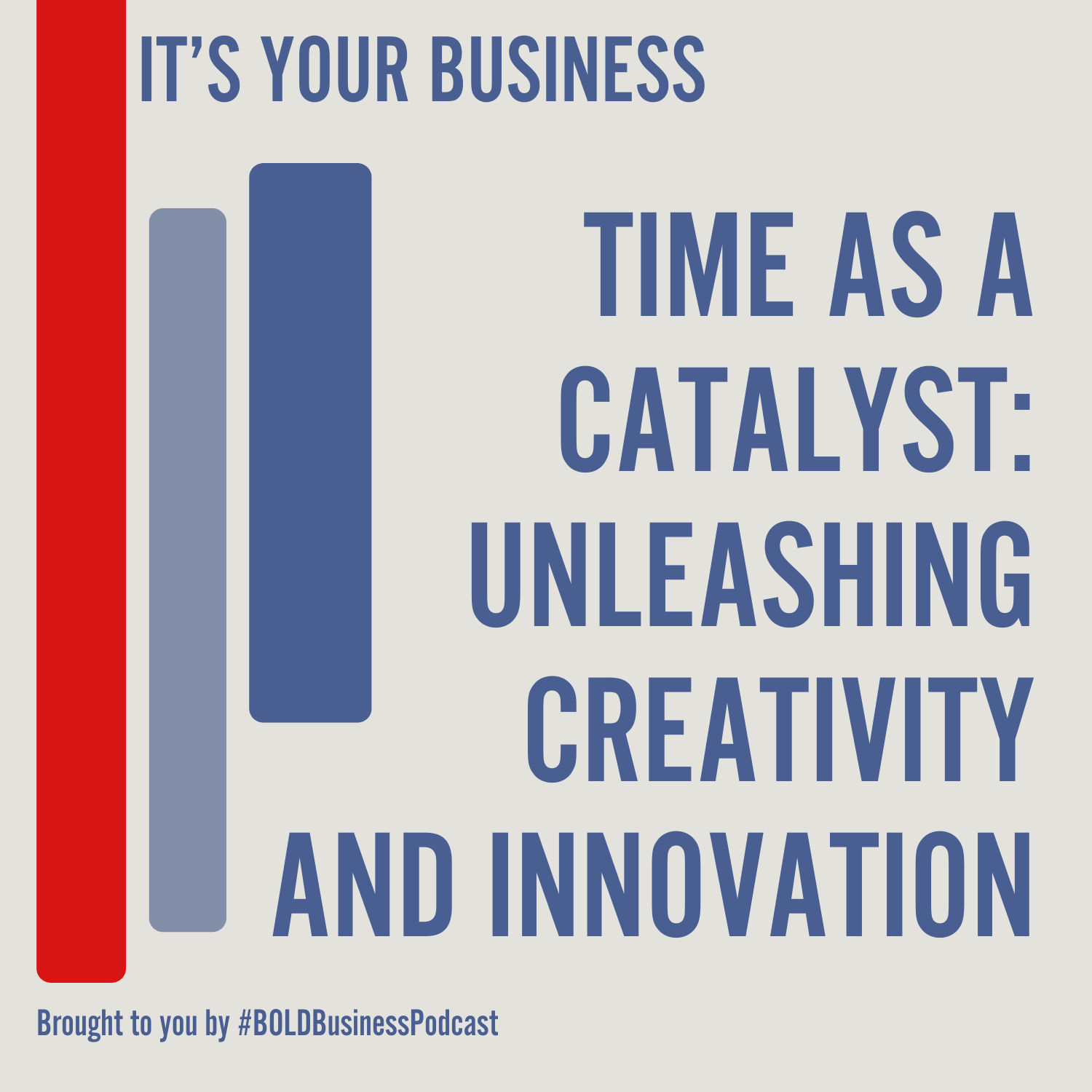
Imagine being able to achieve anything you set your mind to, not because you have more hours in the day, but because you use the ones you have more effectively. This is the central theme of this episode of It's Your Business brought to you by the #BoldBusinessPodcast.
We all experience stress and periods of unproductivity. However, these can be minimized—or even avoided—by changing our relationship with time. By embracing what you can control and reframing your approach to productivity, you can create significant shifts in how you use your time to reach your personal, financial and business goals. This could mean saving time, finding time, or even bending time by making decisions with time as a key resource constraint.
Rewrite Your Script on Time Use
Explore the scripts or narratives you have about how you use your time. Your stories might center on the peer pressure surrounding productivity, what is a ‘good’ or a ‘bad’ use of time, a false sense of how much time certain activities require, no understanding the costs inherent in constantly switching activities, or the stigma of ‘wasting time.’ Recognizing these patterns can help you be accountable for your relationship with time.
Embracing the Finite Nature of Time
Time is the only truly finite resource we have. You have to come to terms with the limitations of a 24 hour day including the importance of sleep, reflection, and play. By maximizing the time available for specific tasks and the distance between where you are and your specific goals, you dramatically increase your capacity to to handle any challenge. An important exercise to consider is questioning the relevance of tasks to your end goals: Why does this matter right now? Why does this matter to your ultimate objectives?
Creativity Through Embracing Time Constraints
Creativity and innovation often stem from embracing time and prioritizing tasks. Learning to let go of less important tasks and aligning your interests and mission to your goals can enhance your effectiveness and creativity. This involves saying "yes" less often, setting clear expectations, and understanding the sequence of actions required to manage what you can't control. Assessing opportunity costs and levels of commitment can also provide clarity on how repeatable success is and what to do when time feels scarce.
Key Takeaways
1. Stop Using the Phrase “Find the Time”: Replace the notion of "finding time" with an understanding of how you currently view and utilize your time. Avoid comparing your time management to that of other business owners.
2. Plan with the End in Mind: Especially for longer-term goals, planning with the end in mind is crucial. This helps you stay focused and aligned with your ultimate objectives.
3. Your Choices Matter: Every choice you make regarding your time has significance. Be solid in your decisions and fully commit to them. This commitment and clarity can transform how you manage and value your time.
Conclusion
Mastering time management is not about having more hours in the day but about using the hours you have more effectively. By understanding the real costs of poor time management, embracing constraints, and prioritizing your tasks, you can achieve more with the time available to you. Remember, time is your most valuable resource—use it wisely, be accountable to it, and watch how these shifts lead to greater productivity and success.
Purpose First Advisors specializes in helping business owners choose the highest value priorities on which to focus their limited time and energy for maximum results. Let us help you build, grow and exit your business on purpose, with purpose.